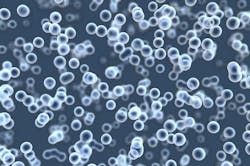Chemical company Inovyn announced on Wednesday that it plans to make a major investment to convert the mercury chlorine cellroom at its facility in Stenungsund, Sweden, to membrane technology.
The company has already launched the initial design and feasibility studies for the conversion, and plans to complete the project by the end of 2017.
Converting the chlorine plant at Stenungsund to the most modern membrane technology fits with Inovyn’s wider strategy in its chlorine business. The company is also expanding its membrane chlorine cellroom at Antwerp/Lillo, Belgium, which is due to come on line in the fourth quarter of 2016.
In addition, Inovyn previously announced a major investment in a large scale potassium hydroxide (KOH) production facility, also at Lillo, which is expected to start operating in late 2017.
Inovyn’s operations director, Jean-Michel Mesland, said that the project at Stenungsund will underpin the sustainability and competitiveness of the business in the long term.
"This and other investments we are making across our European asset base will deliver our commitment to phase out mercury cellroom production in accordance with European regulations," he added.
Inovyn is still evaluating options regarding the mercury cellroom at its Martorell site in Spain. According to the company, the current lack of competitively priced raw materials, especially energy, makes future investment in cellroom conversion at Martorell "significantly less attractive."
